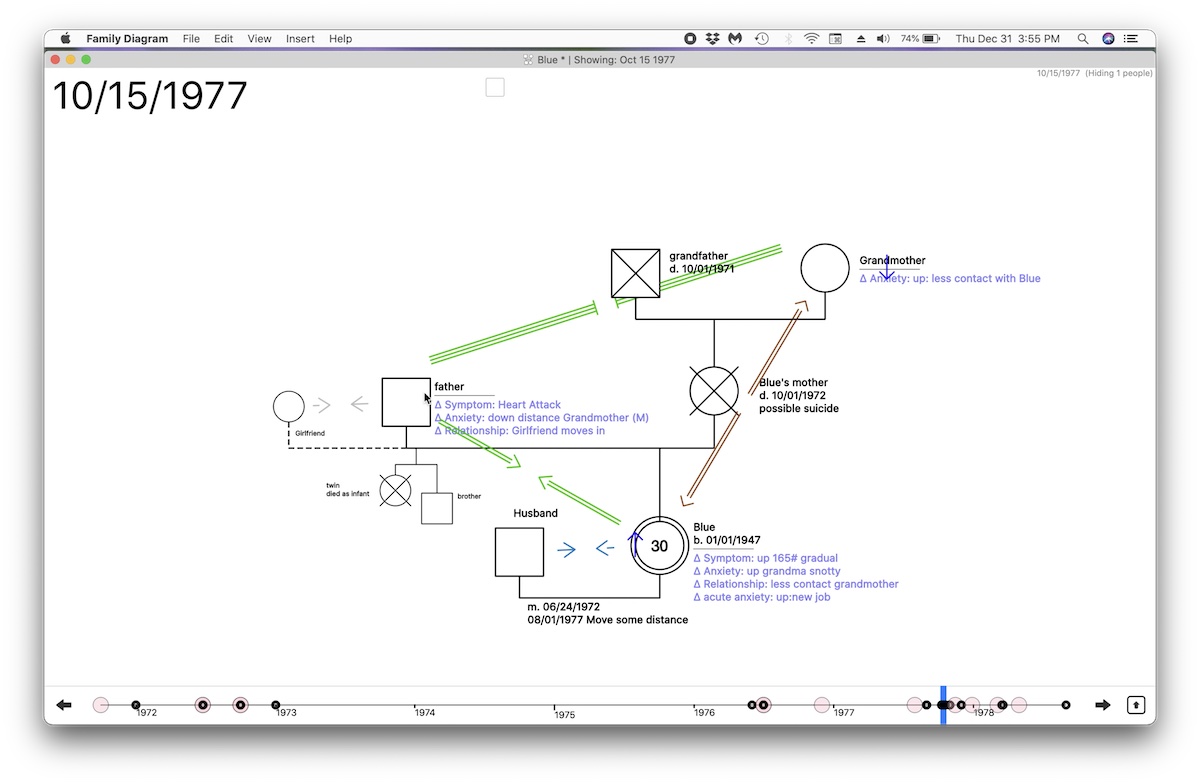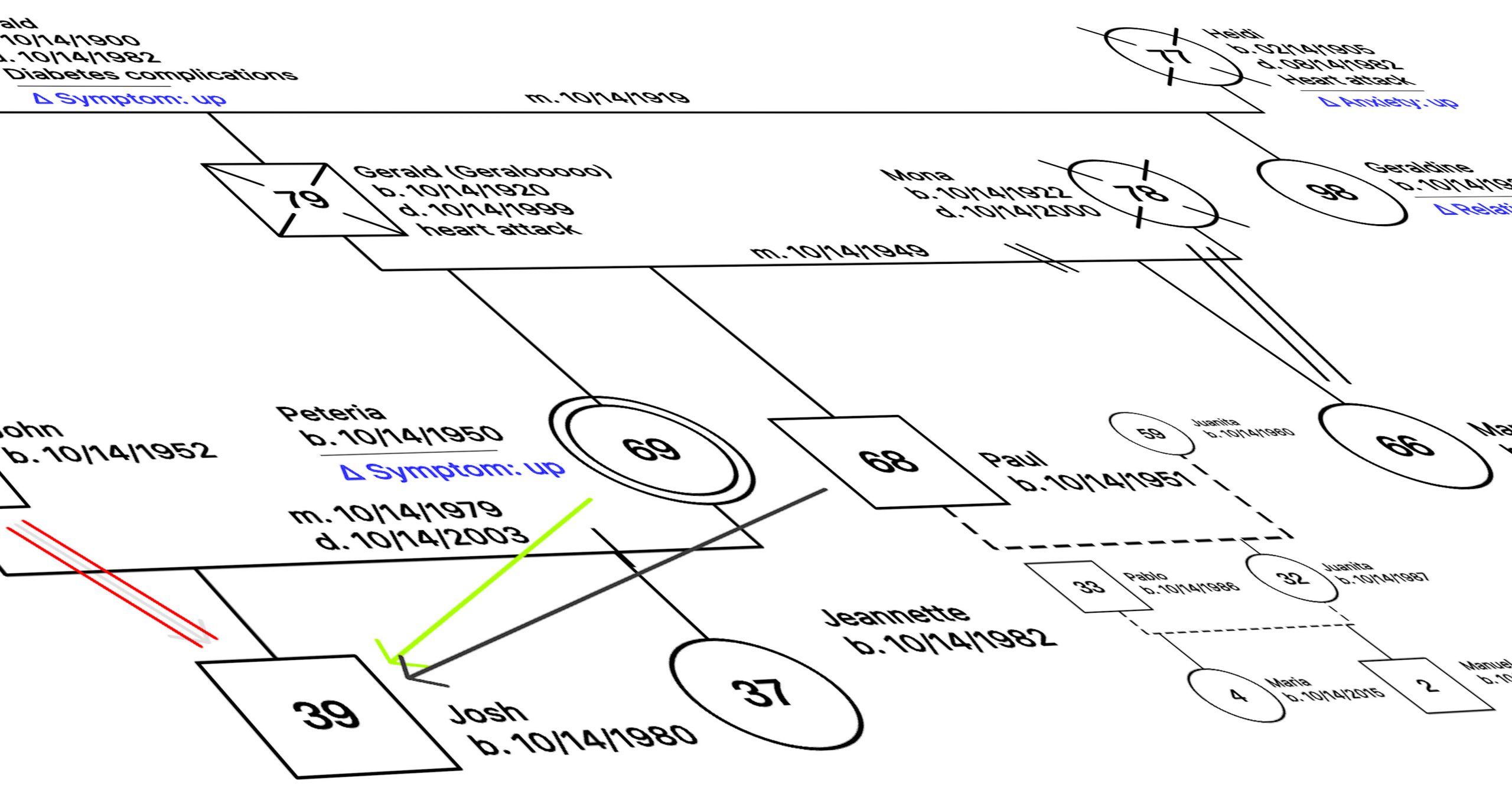Literature and training for Bowen Theory emphasizes the importance of research in both differentiation and professional practice. Most people interested in Bowen Theory are mental health clinicians, clergy, and organizational consultants. Unfortunately, training in these helping professions does not include technical competencies required for formal scientific research or practice.
Evidence for this gap in competency is the rejection rate for application into the Family Diagram App Seminar. The key application requirement is the ability to propose any falsifiable experiment, which is also the first requirement for a graduate level paper in the sciences. The project can be as simple as an elementary school science fair project. However, defining a project that challenges opinion instead of only confirming them remains a challenge for many regardless of the number of decades involved in Bowen Theory programs, conferences, and publications. Once accepted, almost all app seminar participants spend the first year or so discovering that most presentations on Bowen Theory go unchallenged and unsubstantiated by evidence, and that there is a range of basic research skills required to collect, organize, and evaluate data – all before even involving the app.
Thus, the goals of the course are two-fold: 1) To give people interested in Bowen Theory a basic skillset for researching family emotional process, and 2) to serve as a feeder course for application to the Family Diagram app seminar. It is a crash course in much of the same material found in a typical graduate level research design course in the social science, but geared toward the practicalities of tracking an emotional process under Bowen Theory. More generic skills for social science research are excluded, such as statistical methods like T-tests, factor analysis, chi-square, and ANOVA, self-report survey design, ethics in research, types of validity, and others.
The course also serves as a feeder to the Family Diagram App Seminar. It is designed to provide the foundation that many app seminar participants tend to get hung up on before beginning to collect and evaluate data in the app. The app seminar is a forum to present and critique projects conducted using the skills in this introductory course.
Pre-Requisites
- Sufficient Training in Bowen theory
- Amount TBD, likely one year of training from a program in the Bowen Network
- Possible competency exam for terms, methods, and concepts of Bowen theory
- No requirement for undergraduate or graduate degree
- Submitted Application
- Payment of fees (amount TBD, likely between $600 – $1200)
Course Outline
Unit 1: “Research” in Bowen theory
- State of the art
- “A theory based on facts alone”
- Problem of broad VS predictive theories in Clinical Psychology
- Weak on hypothesis testing
- As part of an effort at differentiation of self
- As experimental research for academic publication
- Inside Bowen Network / Outside Bowen Network
- Qualitative research (generating data)
- Quantitative research (Reducing data to conclusions)
- Explicit predictive models
- Can be of qualitative data from counting codes
- The “Research attitude” in BT
- Anecdote: makes clinicians better
- Anecdote: makes clients better
- Expectations?
Unit 2: The Scientific Method
- Some Philosophy of Science
- Induction & Deduction
- Induction: Necessary but insufficient
- Hunch, Data, Evidence
- Ideal: Mechanical precision
- Reality: Human Precision
- Deduction in applying models
- Regression to deduction
- Induction: Necessary but insufficient
- Falsifiability
- Popper on Freud & Adler
- Falsifiable data
- Falsifiable hypotheses
- Induction & Deduction
- Explicit Predictive Models (EPM)
- Concepts die with the models instead of with the relationship system
- Avoids purely verbal / mental reasoning
- Avoids ad-hoc predictions
- Alternative: Blind + falsifiable predictions
- Criterion for science: Can build technology on EPM
- Alternative: Mere ideas / literary tradition
- Cognitive Errors / Markers of Pseudoscience
- Confirmation Bias
- Falsifiability
- Mantra of Holism
- Conflating value (i.e. good VS bad) with fact
- “Differentiation of self”
- “Functioning”
- Qualitative / Generative Methods
- Coding
- Quantitative / Reductive Methods
- Statistical thinking (not math)
- Function of Stats: EPM for R < 1
- Principles: central tendencies, outliers, statistical significance
- Emotional polarization from conflating central tendency with outlier
- Sample sizes
- Statistical thinking (not math)
Unit 3: Modeling Emotional Systems
- Things from BT the field has yet to contend with
- What is “modeling”?
- Hypothesis testing = modeling / engineering / math
- Not mere speculation, review of EPM
- Characteristics of data models of emotional systems
- Definition of a “system” (Bowen)
- Time Series Data
- Shifts in Functioning,
- Limiting a priori w/ qualitative “shift”
- Havstad model
- Characteristics of EPM’s of Emotional Systems
- Scope of Prediction
- Within Person
- Within Family
- Between Families
- Hidden/Latent Variables
- Directly observable variables
- Differentiation of self
- Models
- Markovian Predictions in BT
- Agent Models in BT
- Markovian Agent Models in BT
- Functional Fact
- Opinion, Belief, Probability, Fact
Unit 4: Recording Data with the Family Diagram App
- Why an app?
- Data on EP too complicated to hold in head
- Need explicit way to critique the data-driven inductions
- Animated diagram
- Deductive Mode versus Inductive Mode
- Innovations
- Combining Timeline with Diagram (animation)
- Inside / Outside
- Toward / Away
- App Data Model
- Assumptions built in
- Time series data, shifts on timeline
- Biological Structure
- Mechanisms, Inside/Outside, Toward/Away
- Assumptions left out
- Variable names / relationships
- EPM’s
- Assumptions built in
- Established VS PKS symbols/terms
- Established Terms in BT
- Established Symbols in Family Diagram
- New Symbols proposed in App
Course Schedule
- ~2 classes per unit (~8 classes total)
- Reading assignments due before class
- Short lecture followed by questions
- Quiz following each lesson
- Final Exam




